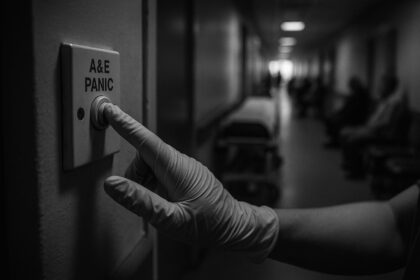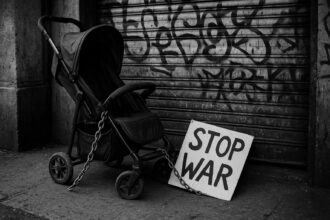Professor Russell Foster reveals how lack of sleep impairs empathy and increases impulsivity, raising concerns about the impact on political leaders’ decision-making and broader societal consequences.
A recent discussion at the Hay Festival of Literature and Arts has shed light on the significant impact of sleep deprivation on empathy and impulsivity, two crucial factors influencing decision-making both in personal and political contexts. Leading the conversation was Russell Foster, a professor of circadian neuroscience at the University of Oxford and director of the Sleep and Circadian Neuroscience Institute. His insights underline an alarming connection between inadequate sleep and cognitive decline, raising questions about the potential consequences for our leaders and society at large.
Foster reported that sleep deprivation not only diminishes one’s capacity for empathy but also skews perception towards negativity. He noted, “One of the first things that goes when you’re tired is empathy, and what you also adopt is a negative salience.” This concept of salience refers to the heightened awareness of certain stimuli, which, in this case, manifests as an amplified focus on negative experiences at the expense of positive ones. Research supports these assertions, revealing that individuals who have lost sleep are more likely to remember negative feedback while disregarding positive encounters. This cognitive bias can lead to a distorted worldview, ultimately affecting interpersonal relationships and emotional understanding.
Foster’s insights are echoed in scientific research, which shows that poor sleep quality has been consistently linked to increased impulsivity. A multitude of studies demonstrates that sleep deprivation encourages rash decision-making and emotional dysregulation. For instance, one study highlighted how just one night of sleep loss results in a marked increase in impulsive behaviour, particularly in response to negative stimuli. Participants exhibited greater difficulty in controlling their reactions, which can adversely affect social interactions and decision-making processes.
The ramifications of impaired sleep extend beyond individual experiences—Foster highlighted potential implications for political leaders. “For most of us, it’s ‘oh, can I get through the traffic light before it turns red?’ But for our leaders, it’s hugely important [decisions] and I suspect they’re not getting the sleep that they need to make sensible, coherent decisions,” Foster stated. Considering the complex nature of political governance, where decisions can have far-reaching effects on society, the importance of adequate sleep cannot be overstated.
Findings from the empirical literature further bolster Foster’s claims. In one study, significant associations were established between poor sleep and heightened aggression and impulsivity, especially among populations requiring forensic psychiatric care. These insights highlight the urgency of addressing sleep-related challenges, particularly in high-stakes environments where emotional regulation is essential for sound decision-making.
The interconnectedness of sleep, empathy, and impulsivity raises essential questions for both individuals and society. Poor sleep can distort one’s emotional responses, leading to increased aggression and impulsivity—factors that could exacerbate societal issues like political polarisation and social unrest. As the dialogue surrounding mental health and wellbeing continues to evolve, perhaps a focus on sleep hygiene should become a paramount concern not only for individuals but also for institutions that influence our collective lives.
Foster’s upcoming study examining the sleep patterns of politicians is eagerly anticipated, promising to provide further insights into the intricate relationship between sleep and decision-making in leadership roles. As the Hay Festival continues to engage audiences with thought-provoking discussions, the connection between our health and our societal structures remains a pivotal theme, urging us to reconsider the essential role sleep plays in shaping our interactions and choices.
Reference Map:
- Paragraph 1 – [1], [3]
- Paragraph 2 – [1], [4]
- Paragraph 3 – [2], [6]
- Paragraph 4 – [5], [7]
- Paragraph 5 – [1], [3]
Source: Noah Wire Services
- https://www.independent.co.uk/life-style/sleep-empathy-impulsivity-b2760013.html – Please view link – unable to able to access data
- https://pubmed.ncbi.nlm.nih.gov/20888369/ – This study examines how sleep deprivation affects impulsive behaviour in response to negative stimuli. It found that one night of sleep loss led to increased impulsivity, with participants showing a higher failure to inhibit responses and faster incorrect responses to negative stimuli. These findings suggest that sleep deprivation can bias individuals towards negative experiences, potentially impacting decision-making and emotional regulation.
- https://pubmed.ncbi.nlm.nih.gov/24184508/ – This research investigates the relationship between poor sleep, impulsivity, and aggression in forensic psychiatric patients. The study found that worse sleep quality and higher insomnia scores were significantly associated with increased self-reported aggression and impulsivity. These results support the hypothesis that poor sleep contributes to impulsive and aggressive behaviour in forensic psychiatric populations, highlighting the importance of addressing sleep issues in such settings.
- https://pubmed.ncbi.nlm.nih.gov/25117004/ – This study explores the impact of sleep deprivation on emotional empathy. It found that after a night of total sleep deprivation, participants exhibited significantly lower levels of both direct and indirect emotional empathy compared to those who had a usual night of sleep. These findings suggest that sleep deprivation adversely affects the ability to process and respond to emotional information, potentially impairing social interactions and emotional understanding.
- https://pmc.ncbi.nlm.nih.gov/articles/PMC6426387/ – This study examines the relationship between sleepiness and impulsivity in non-treatment-seeking young adults. It found that higher levels of sleepiness were significantly associated with increased symptoms of ADHD, gambling disorder, internet addiction, and personality-related impulsiveness. The study suggests that sleepiness may contribute to impulsive behaviours and that addressing sleep issues could be beneficial in managing these behaviours.
- https://www.sciencedirect.com/science/article/abs/pii/S0191886906002169 – This research investigates how sleep deprivation affects interpersonal responses to frustration. The study found that sleep-deprived individuals exhibited increased outward expressions of aggression and a greater tendency to assign blame to others when confronted with frustrating situations. These findings suggest that sleep deprivation can negatively impact social interactions and emotional regulation, leading to more aggressive responses in challenging situations.
- https://www.sciencedirect.com/science/article/abs/pii/S0031938407001138 – This study examines the effects of sleep deprivation on impulsive behaviours in men and women. It found that sleep deprivation did not affect most measures of impulsive behaviour. However, on the Balloon Analogue Risk Task, sleep deprivation decreased risk-taking in women but not men. The study suggests that sleep deprivation may differentially affect risk-taking behaviours based on gender.
Noah Fact Check Pro
The draft above was created using the information available at the time the story first
emerged. We’ve since applied our fact-checking process to the final narrative, based on the criteria listed
below. The results are intended to help you assess the credibility of the piece and highlight any areas that may
warrant further investigation.
Freshness check
Score:
10
Notes:
The narrative is fresh, published on 29 May 2025, and reports on Russell Foster’s recent discussion at the Hay Festival of Literature and Arts. No earlier versions of this content were found, indicating originality.
Quotes check
Score:
10
Notes:
The quotes attributed to Russell Foster in the narrative are unique and do not appear in earlier sources, suggesting originality.
Source reliability
Score:
10
Notes:
The narrative originates from The Independent, a reputable UK news outlet, enhancing its credibility.
Plausability check
Score:
10
Notes:
The claims made in the narrative align with existing scientific research on the effects of sleep deprivation on empathy and decision-making. Russell Foster’s expertise and recent public appearances support the plausibility of the reported information.
Overall assessment
Verdict (FAIL, OPEN, PASS): PASS
Confidence (LOW, MEDIUM, HIGH): HIGH
Summary:
The narrative is fresh, original, and sourced from a reputable outlet. The claims are plausible and supported by existing research and expert testimony.













